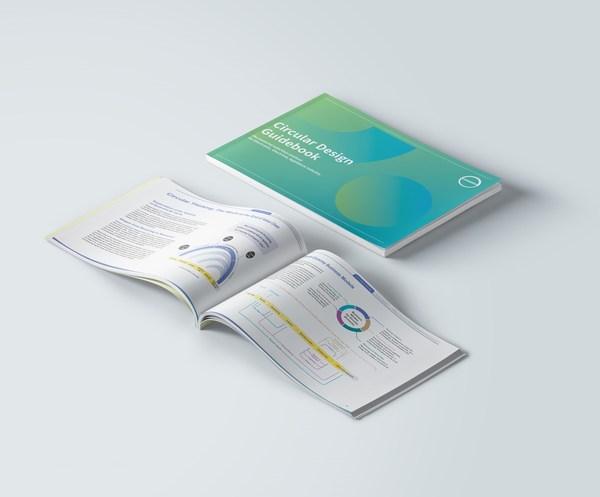SHANGHAI, March 22, 2021 /PRNewswire/ -- The Circular Economy is gaining importance in the electrical, electronic and household appliance (EEA) industry. As a result, more and more manufacturers in this sector are talking about their sustainability goals, in particular about an increased use of recycled materials in their end products. To help these customers find more sustainable solutions, materials manufacturer Covestro has teamed up with REnato lab, a Circular Economy consultancy focused on resource efficiency, to publish the "Circular Design Guidebook" – a guide to help designers and developers make their next-generation products more circular.

To enable more sustainable solutions for customers in the electrical, electronics and household appliance industries, Covestro has published the "Circular Design Guidebook" together with the consulting firm REnato lab. The guide is designed to help designers and developers make their next-generation products more circular. © Covestro
"The key to solving the problem of material waste is to consider the end of product life in the initial design phase to facilitate recycling," said Lily Wang, Senior Vice President and Global Head of Electronics, Electrical and Appliances in Covestro's Polycarbonates segment. "This guide helps incorporate circular thinking at the early stages for designers, developers and those in the value chain, who can use it as a material selection method that is the first of its kind in the EEA industry."
Measures for a circular approach
To achieve their sustainability goals, OEMs are looking to increase the use of recycled materials, improve resource use efficiency, extend product life and ensure better recyclability of their products – among other measures as part of a circular approach. Covestro itself has already supplied major EEA brands with polycarbonate grades containing post-consumer recyclate.
The book uses case studies and processes to explain material selection so that products meet sustainability and recyclability requirements. It also describes the resource constraints facing the industry, supply chain-oriented thinking, relevant business models, and a basic introduction to the Circular Economy. The book can also be used for discussions with customers as well as for presentations and workshops.
Focus on resource efficiency
"Material selection, in particular, is the foundation for circular design to optimize resource efficiency," says Jackie Wang, founder and CEO of REnato lab. "Researching resource efficiency solutions is the core mission of REnato lab. Through the partnership with Covestro, we have completed the first design guide on material selection for the EEA industry. The book is intended to provide examples and help for the industry and serve as an easy-to-read guide for the general public."
The guidebook consists of three chapters – "From Linear to Circular", "Circular Design" and "Material Selection from a Sustainable Perspective" – and is available in English, German and Chinese. With this guidebook, Covestro aims to drive the development of the Circular Economy in the EEA industry and expand it to other sectors in the future.
About Covestro:
With 2020 sales of EUR 10.7 billion, Covestro is among the world's leading polymer companies. Business activities are focused on the manufacture of high-tech polymer materials and the development of innovative, sustainable solutions for products used in many areas of daily life. In doing so, Covestro is fully committed to the circular economy. The main industries served are the automotive and transportation industries, construction, furniture and wood processing, as well as electrical, electronics, and household appliances industries. Other sectors include sports and leisure, cosmetics, health and the chemical industry itself. At the end of 2020, Covestro has 33 production sites worldwide and employs approximately 16,500 people (calculated as full-time equivalents).
Forward-looking statements
This news release may contain forward-looking statements based on current assumptions and forecasts made by Covestro AG. Various known and unknown risks, uncertainties and other factors could lead to material differences between the actual future results, financial situation, development or performance of the company and the estimates given here. These factors include those discussed in Covestro's public reports which are available at www.covestro.com. The company assumes no liability whatsoever to update these forward-looking statements or to conform them to future events or developments.